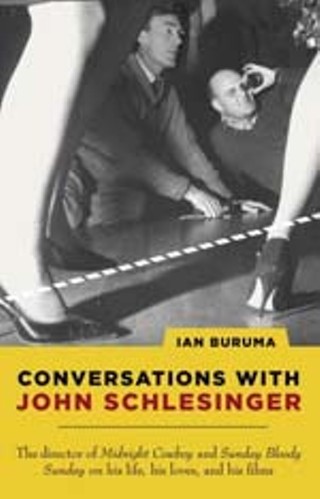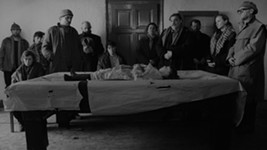In Print
By Spencer Parsons, Fri., June 16, 2006

Conversations With John Schlesinger
by Ian Buruma
Random House, 208 pp., $14.95 (paper)
If John Schlesinger's Midnight Cowboy hasn't aged well, neither have a lot of other Best Picture Oscar winners, and none of those boast either an X rating or Jon Voight as an apple-cheeked rent boy. Marred by an easily shocked vision of fanciful lowlife, as well as a memorably risible evocation of Andy Warhol's Factory, it nevertheless ranks as an authentic cultural event, having introduced a closeted gay cowboy to the Oscar bait mainstream 36 years before the word "brokeback" achieved beatitude as cause célèbre and universal punchline. Taken in Schlesinger's body of work, the film is a telling anomaly: a financial and critical success that cemented the director's position as a Hollywood player even as his sense for social relationships and politics stumbled into the syrupy gutters of a fairy-tale New York. Its flash and color loudly announce what was for the time a genuine, if confused, bravery, where the best of his work is more radical in its more unassuming, even flat-footed straightforwardness. Throughout the career examined in Ian Buruma's Conversations With John Schlesinger, the director's courage is repeatedly drawn out for him to address with perplexity at discovering that what he'd done without particular trepidation actually took balls. Long before the New Queer Cinema launched a thousand gay/lesbian film festivals in the early Nineties, Schlesinger was out and making films aimed at the mainstream in which gay and bisexual characters sometimes played major roles unencumbered by traditional cinematic euphemism. Never one to be pigeonholed, he skipped nimbly across genre and subject, ranging from Billy Liar to Sunday Bloody Sunday to The Falcon and the Snowman to Marathon Man and his adaptation of Thomas Hardy's Far From the Madding Crowd, and this book offers engaging discussions on storytelling, work with actors, and the troubles of functioning within a studio system.
I should say I admire a fair bit of the man's early-to-midcareer work without being particularly stirred by it (aside from the vastly underappreciated The Day of the Locust), but I will admit that in these interviews his voice comes through more impressively than expected. Spiked with candor about relationships, collaborations, and enjoyment of sex, Conversations should offer fans a personable window on the director's outlook and process, while its accounts of Laurence Olivier's bemusement at Dustin Hoffman's preparations for a scene, Sean Penn's "Method" of drug experimentation, or the director's story of befriending Robert Evans in large part because of the producer's expressed distaste for Day of the Locust, offer more disinterested cinephiles an entertaining and particular oral history of Hollywood and British filmmaking in the Seventies and Eighties.








